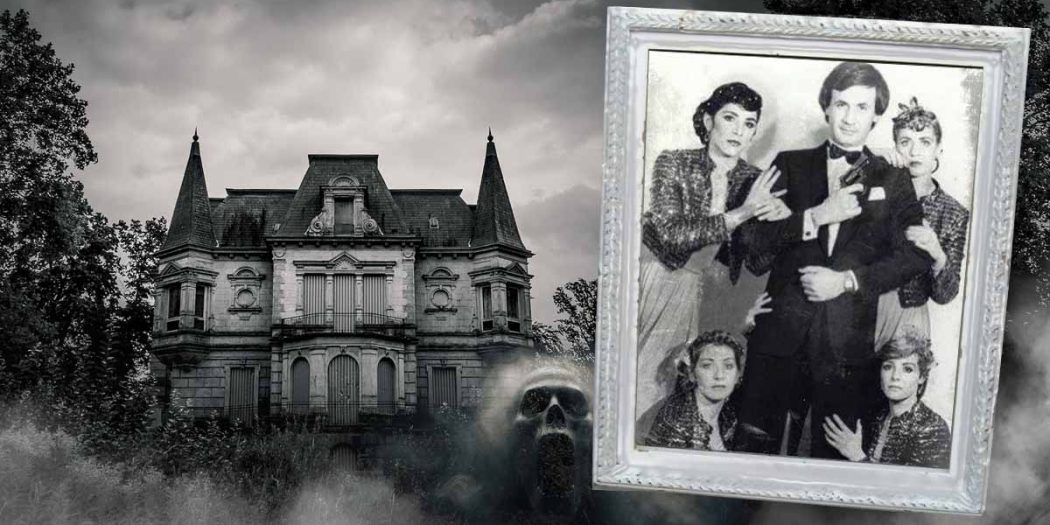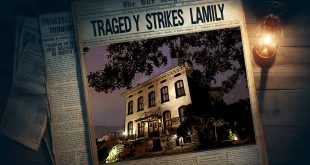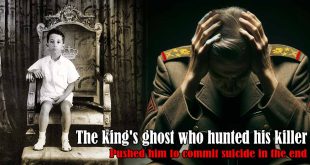Written by: Ahmed Benjamin and Hager Youssef – Egypt
Villa Cicurel, located in Cairo, has been the subject of numerous publications and rumors over the years. However, these did not quench my curiosity, prompting me to delve into the villa’s history myself—a history imbued with elements of mystery and blood.
Who was Cicurel?
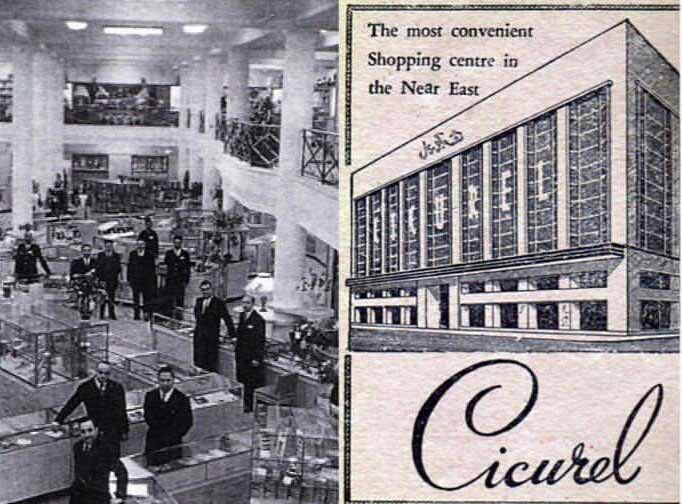
Cicurel was a group of stores specializing in high-fashion and elegant clothing. Established in Cairo by an Italian Jewish, Moreno Cicurel, in the early twentieth century, the store rapidly gained a reputation as one of Egypt’s most luxurious retail destinations. It became a popular gathering spot for the Egyptian elite and prominent figures, and also the shopping destination for the Egyptian royal family for their clothing needs. Employing hundreds of workers, Cicurel had branches in several major Egyptian cities.
After the death of Moreno, his son Salomon Cicurel inherited the business, expanding and enhancing its operations.
The immense wealth generated by these shops made the Cicurel family extraordinarily affluent, attracting the greed and envy of many.
The Horrific Crime
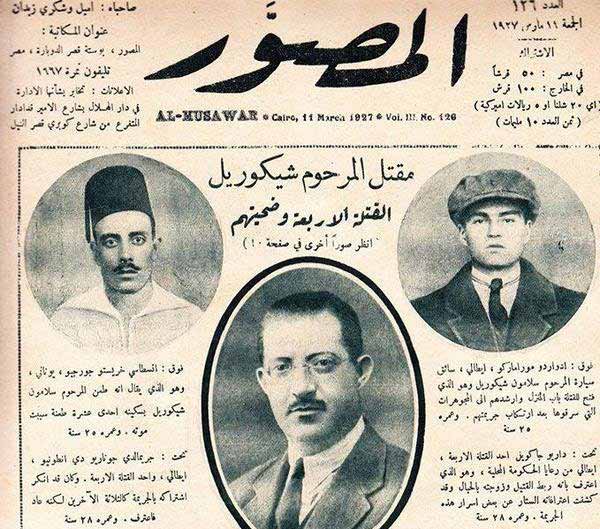
In 1927, Cairo was shaken by shocking news. The headlines of major newspapers reported the murder of Salomon Cicurel by thieves.
Initially, the thieves subdued Salomon’s wife using a handkerchief laced with drugs, placed over her mouth. When they attempted to drug Cicurel, he sensed their presence and confronted them, only to receive eleven stab wounds in various parts of his body, leading to his death. All of this unfolded before his wife, who, the thieves believed, was drugged, and had not witnessed anything. Thus, they left her alive after looting the house of money and jewelry.
It only took a few days for the authorities to arrest the criminals, four men, thanks to the testimony of the victim’s wife. The ringleader was revealed to be Cicurel’s private driver, Anseti Christo, who had been recently dismissed for his misconduct. He was aided by the driver of Cicurel’s wife, Eduardo Moramarco.
During the trial, Anseti Christo claimed he killed Cicurel out of revenge for mistreatment and to steal valuable jewelry from the house. However, his defense was met with skepticism as Salomon Cicurel was known for his kindness and tolerance. Perhaps it was this excessive kindness that ultimately led to his downfall, given his indifference towards minor thefts in his house despite suspecting his employees.
On April 19, 1927, the defendants were sentenced to death by hanging. However, only one of them, an Egyptian Jew, faced this sentence. The others, being foreigners, were tried under the laws of their respective countries, as international treaties stipulated. This situation sparked significant judicial and political controversy in Egypt at the time.
Following the tragedy, Solomon’s wife and their children relocated to France and never returned to Egypt. His daughter, Lily, married Pierre Mendès-France, who later became the Prime Minister of France.
The Haunted Villa
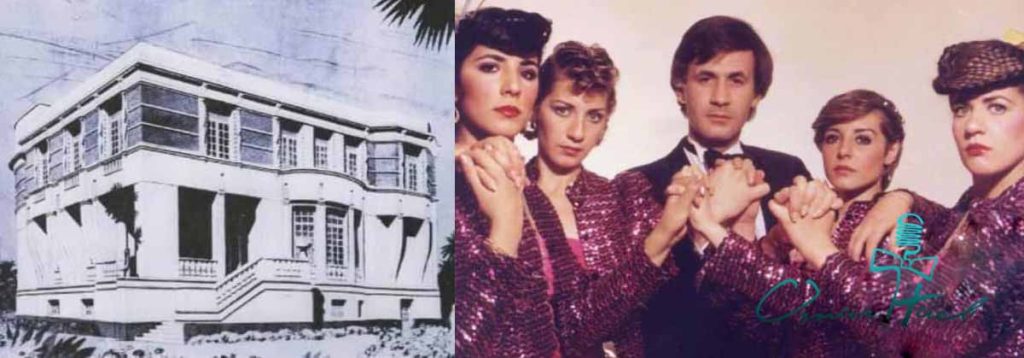
For years following the crime, the villa remained untouched and unapproached due to rumors of a ghost haunting its halls and mysterious piano music emanating from within, until 1957 when it was purchased by the family of Ahmed Shafiq Abu Aouf, an officer and musician.
The Abu Aouf family is among the most renowned in Egypt and the Arab world. Their late son, actor and singer Ezzat Abou Aouf, and his four sisters (Mona, Maha, Manal, and Mervat) rose to fame in the 1980s with their musical band, (4M).
For fifty years, the family resided in the villa, and over time, they have shared their experiences with the villa’s ghost in the media, eventually accepting its presence as though it were a family member.
Maha Abu Aouf recounted on a television program that initially they attributed the unexplained footsteps and sounds echoing through the house to cats or rats. Her mother frequently heard these noises, but her father would dismiss them as mere imagination. However, as the disturbances grew unbearable, her grandmother sought the assistance of a rabbi, a priest, and a Muslim sheikh to rid the villa of the ghost.
Maha recalled an incident where her uncle, while studying in the office, rested his head on the desk and closed his eyes. He was startled by the sound of breathing and footsteps. Looking behind him, he was astonished to see a man dressed in black, with greased, slicked-back hair. Most unnerving were the man’s eyes, which appeared to protrude from his face. Despite his fear, her uncle tried to confront the figure, but his hand passed through it as if it were air. He left the office in a state of shock, his face pale as if he had seen death itself.
Maha recounted her own experience: “Initially, I didn’t believe in the ghost, just like my father. My skepticism persisted until I saw it myself. The ghost was a handsome, elegant man, walking with assured strides, a luxury cigar in hand. I watched as he sat at the piano and began to play. I hurried to tell my father, but he didn’t believe me.
Gradually, I started seeing the ghost frequently and became accustomed to its presence, almost as if it were another family member.”
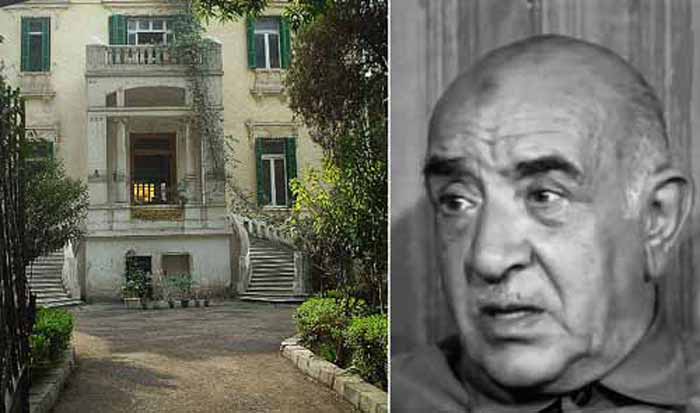
Maha continued: “There was this one time when we were on vacation in Alexandria, and my father was home alone. He had composed a piece of music in the morning but forgot to write it down and subsequently couldn’t remember it. He tried repeatedly to recall it with his oud, but it was in vain. Finally, he gave up and went to bed. While lying there, he suddenly heard the forgotten melody being played on his oud outside the room! This was soon followed by the ghost’s appearance in my father’s bedroom, as if to affirm its existence to him, since he was the only one who hadn’t believed in the ghost.”
The family’s only son, Ezzat Abou Aouf, also shared his experiences on a television program. He described the ghost as a sixty-year-old man, appearing aristocratic. “He moved about freely in our home,” Ezzat said, “but the peculiar thing was that his eyes never met ours.”
The presenter inquired about common haunted phenomena, like doors and windows opening and closing on their own. Ezzat replied, “No, nothing like that. However, I do recall an incident when my father and mother were arguing, and a wardrobe cupboard fell on him. On another occasion during an argument, a vase fell on his foot.”
In a separate interview, Ezzat mentioned that the renowned actress Yousra, a childhood friend of his sister, had also encountered the ghost during an overnight stay. She was so terrified that she fled the house in her pajamas, rushing back to her own home, which was on the same street.
It’s worth noting that rumors persist about other Cicurel family members being killed or committing suicide in the villa. However, these are unverified stories. The only confirmed truth is the murder of Salomon in the villa and the fact that his brother, Salvator, took over the management of the shops afterwards.
The End of an Era for Cicurel shops
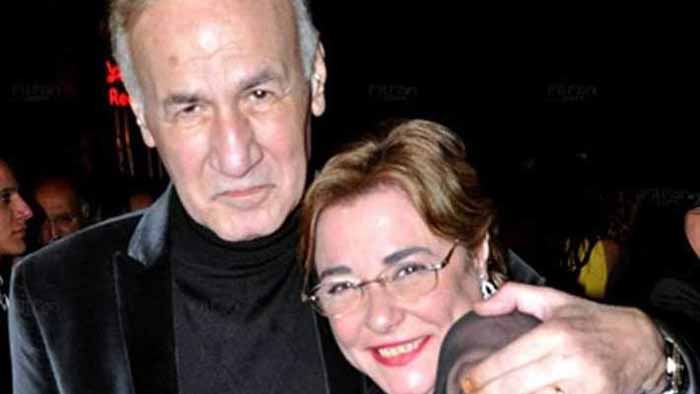
The Cicurel shops continued its operations for a time, but as the Arab-Israeli conflict intensified, Salvatore found himself compelled to sell the group to his Muslim partner and leave Egypt permanently. In 1961, the Cicurel stores were nationalized and seized by the Egyptian government.
According to Wikipedia, Salvator Cicurel passed away in Miami, America, in 1975, at the age of 82.
In the early 2000s, Villa Cicurel was sold. Rumor has it that the buyer was an attaché or embassy in Cairo, but there’s been little news about the villa since the Abu Aouf family departed. It’s important to note that the Cicurel family owned several villas in Egypt, all designed by renowned European architects. Most of these villas were confiscated by the Egyptian government in the aftermath of the July Revolution of 1952. This matter, the confiscation of property, happened to many members of the Egyptian aristocracy after the fall of the monarchy.
Ezzat Abou Aouf, the family’s only son, passed away in 2019, followed by Maha Abou Aouf in 2022.
What makes the story of the Abu Aouf family’s haunted villa unique is that it wasn’t as terrifying as typical ghost stories. Instead, the ghost appeared to be benign, seemingly enjoying its time with the artistic family!
 kabbos
kabbos
